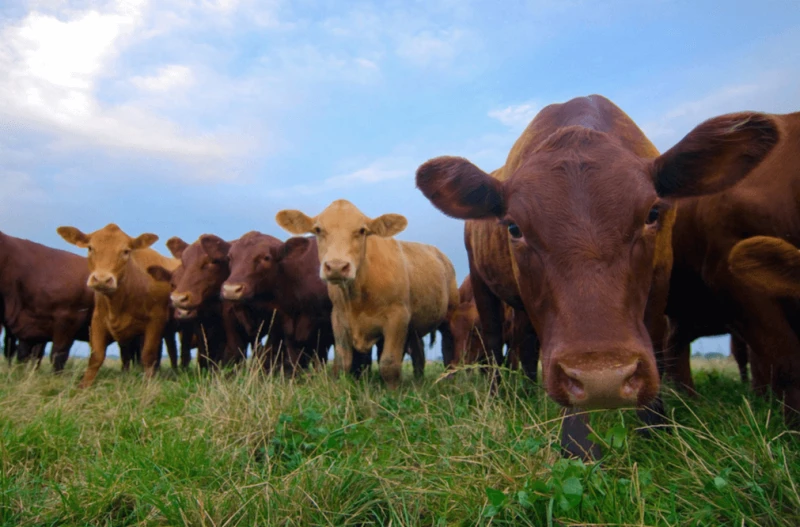Carbon tradeoff: Which is better for the environment
Carbon tradeoff: Which is better for the environment — grain-fed or pasture-raised beef?


Beef production accounts for the largest share of global livestock greenhouse gas emissions and is an important target for climate mitigation efforts. Most life-cycle assessments comparing the carbon footprint of beef production systems have been limited to production emissions. None also consider potential carbon sequestration due to grazing and alternate uses of land used for production. We assess the carbon footprint of 100 beef production systems in 16 countries, including production emissions, soil carbon sequestration from grazing, and carbon opportunity cost—the potential carbon sequestration that could occur on land if it were not used for production. We conduct a pairwise comparison of pasture-finished operations in which cattle almost exclusively consume grasses and forage, and grain-finished operations in which cattle are first grazed and then fed a grain-based diet.
We find that pasture-finished operations have 20% higher production emissions and 42% higher carbon footprint than grain-finished systems. We also find that more land-intensive operations generally have higher carbon footprints.
…
In our results, soil carbon sequestration from grazing offsets only a portion of production emissions. This finding is consistent with the conclusions of Garnett et al. (2017), which estimated that soil carbon sequestration from grazing can offset 20–60% of annual emissions from ruminant grazing.
This is an excerpt. Read the original post here

 | Videos | More... |

Video: Nuclear energy will destroy us? Global warming is an existential threat? Chemicals are massacring bees? Donate to the Green Industrial Complex!
 | Bees & Pollinators | More... |

GLP podcast: Science journalism is a mess. Here’s how to fix it

Mosquito massacre: Can we safely tackle malaria with a CRISPR gene drive?

Are we facing an ‘Insect Apocalypse’ caused by ‘intensive, industrial’ farming and agricultural chemicals? The media say yes; Science says ‘no’
 | Infographics | More... |

Infographic: Global regulatory and health research agencies on whether glyphosate causes cancer
 | GMO FAQs | More... |

Why is there controversy over GMO foods but not GMO drugs?

How are GMOs labeled around the world?

How does genetic engineering differ from conventional breeding?
 | GLP Profiles | More... |

Alex Jones: Right-wing conspiracy theorist stokes fear of GMOs, pesticides to sell ‘health supplements’




 Viewpoint — Fact checking MAHA mythmakers: How wellness influencers and RFK, Jr. undermine American science and health
Viewpoint — Fact checking MAHA mythmakers: How wellness influencers and RFK, Jr. undermine American science and health Viewpoint: Video — Big Solar is gobbling up productive agricultural land and hurting farmers yet providing little energy or sustainabilty gains
Viewpoint: Video — Big Solar is gobbling up productive agricultural land and hurting farmers yet providing little energy or sustainabilty gains Fighting deforestation with CO2: Biotechnology breakthrough creates sustainable palm oil alternative for cosmetics
Fighting deforestation with CO2: Biotechnology breakthrough creates sustainable palm oil alternative for cosmetics Trust issues: What happens when therapists use ChatGPT?
Trust issues: What happens when therapists use ChatGPT? 30-year-old tomato line shows genetic resistance to devastating virus
30-year-old tomato line shows genetic resistance to devastating virus California, Washington, Oregon forge immunization alliance to safeguard vaccine access against federal undermining
California, Washington, Oregon forge immunization alliance to safeguard vaccine access against federal undermining The free-range chicken dilemma: Better for birds, but with substantial costs
The free-range chicken dilemma: Better for birds, but with substantial costs ‘You have to treat the brain first’: Rethinking chronic pain with Sanjay Gupta
‘You have to treat the brain first’: Rethinking chronic pain with Sanjay Gupta
